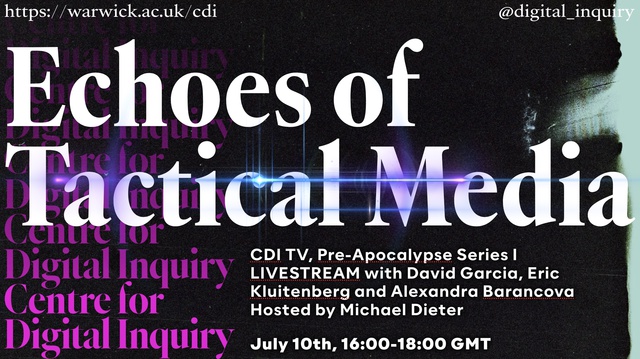Next 5 Minutes 3
Amsterdam & Rotterdam, The Netherlands, 12-14 March, 1999
The third Next 5 Minutes, an Amsterdam based conference on tactical communications culture, featuring do-it-yourself media, dissident art and electronic media activists from around the world, took place on the 12th, 13th and 14th of March 1999.
N5M3 archived festival website
Read
